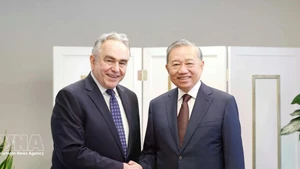Deepening border defence diplomacy
Colonel Tran Quang Tung, Political Commissar of the Lao Cai Provincial Border Guard Command, stated that specialised units have developed annual foreign affairs plans to implement concrete actions, contributing to the effective management and protection of national territorial sovereignty and border security.
The command has instructed border posts and checkpoints to proactively develop programmes in line with their functions and duties. Lieutenant Colonel Vu Tran Minh Dat, Chief of the Lao Cai International Border Gate Border Post, added that the unit coordinates with relevant sectors and state management forces at the border gate to manage and protect the border, monitor cross-border movement, and facilitate streamlined immigration and trade procedures. Notably, the post regularly conducts joint and bilateral patrols in coordination with the Hekou Entry-Exit Border Checkpoint (China), maintains hotlines, and exchanges liaison officers to support joint patrol and inspection activities.
The Lao Cai Provincial Border Guard Command has proactively worked with Chinese border forces to propose and improve cooperation mechanisms at all levels. It has directed border posts to closely coordinate with opposing units across the border to strengthen relations, maintain regular dialogue, and exchange information on matters related to border protection.
In 2024, following the direction of the Ministry of National Defence and the Border Guard Command, the Lao Cai Border Guard Command has proactively engaged with the Mengzi Border Guard Region (China) to prepare for the 8th Viet Nam-China Border Defence Friendship Exchange in Lao Cai. This includes organising bilateral patrols, coordinating with relevant Vietnamese and Chinese agencies to ensure security and safety throughout the exchange programme.
Strengthening people-to-people diplomacy
Alongside its core border defence diplomatic efforts, the Lao Cai Border Guard Command has also instructed border posts to implement diverse measures to boost public outreach, particularly in key border and gate areas. The unit frequently meets with village chiefs and clan leaders to leverage ethnic and familial ties between communities on both sides of the border, helping raise awareness among locals on national sovereignty and legal documents relating to the Viet Nam-China borderline.
Border units have effectively promoted people-to-people diplomacy with local authorities and residents across the border through regular meetings, discussions, cultural exchanges, and twinning activities.
To date, Lao Cai leads the nation in the twinning of border community clusters between Viet Nam and China, with eight paired villages, communes, and towns already established.
According to Colonel Tran Quang Tung, Political Commissar of the Lao Cai Provincial Border Guard Command, in order to enhance the effectiveness of border defence diplomacy and firmly safeguard the nation's security belt it is crucial to maintain a peaceful, friendly, and stable border. Units must continue to effectively implement the Border Defence Cooperation Agreement between the Ministries of National Defence of Viet Nam and China signed on November 24, 2024. This includes strengthening cooperation in law enforcement, organising joint cultural, artistic and sports exchanges, and applying comprehensive and coordinated diplomatic measures.
It is equally important to consolidate and deepen established cooperation mechanisms such as professional dialogues, correspondence, liaison officers, hotline communications, joint and bilateral patrols, information sharing, repatriation handovers, cross-border crime prevention, and coordinated handling of border and checkpoint incidents.
In recent times, the command has continued advising local party committees and authorities on expanding the model of twinned border community clusters, and promoting socio-economic and cultural development in border areas. These efforts have contributed meaningfully to building a peaceful, friendly, cooperative and prosperous border region.
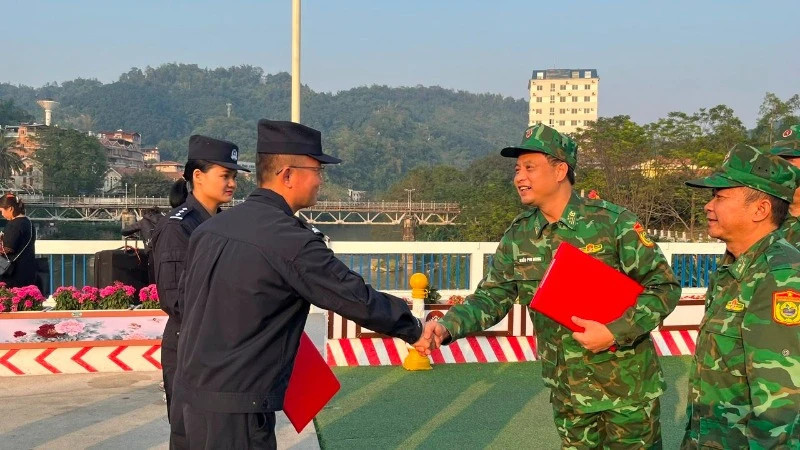
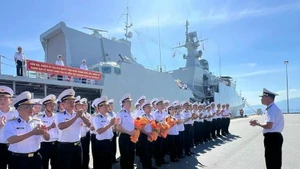
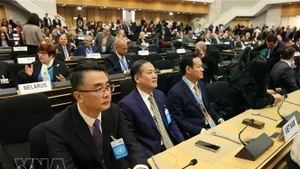

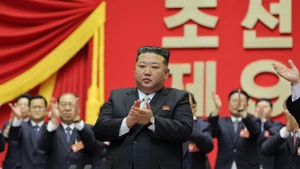

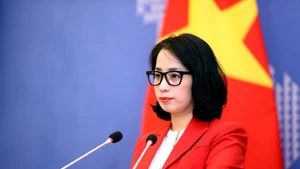

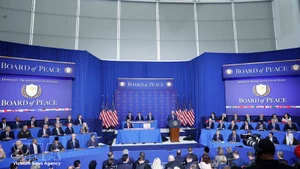
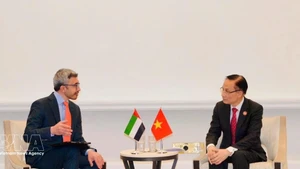
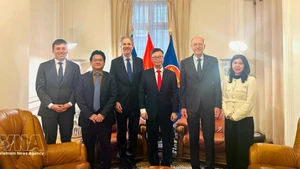
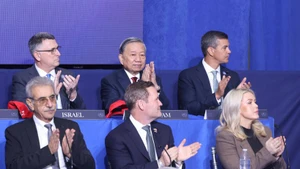
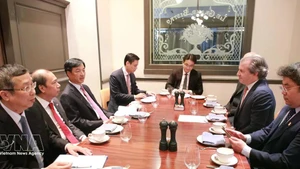
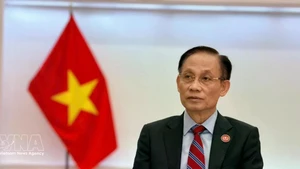
![[In pictures] Party General Secretary To Lam meets US President Donald Trump](https://en-cdn.nhandan.vn/images/dcd63867a0eed4c7753eb4bfb346593abc1ce710dfab8ad1b9aebd75ea6bf930b2ea13e4664779d689ba40aadd80f76d5d05d1208720fd7b0d811ace3a3297321c78cf738400e136e3f2d8790b24d43646e46edbe19517144a88f6ffb0d528f153574a7109328cc0949e4a4c16433c2ff751541639eefe4490518227264cbf8e/vna-potal-tong-bi-thu-to-lam-gap-tong-thong-hoa-ky-donald-trump-8599945.jpg.webp)
